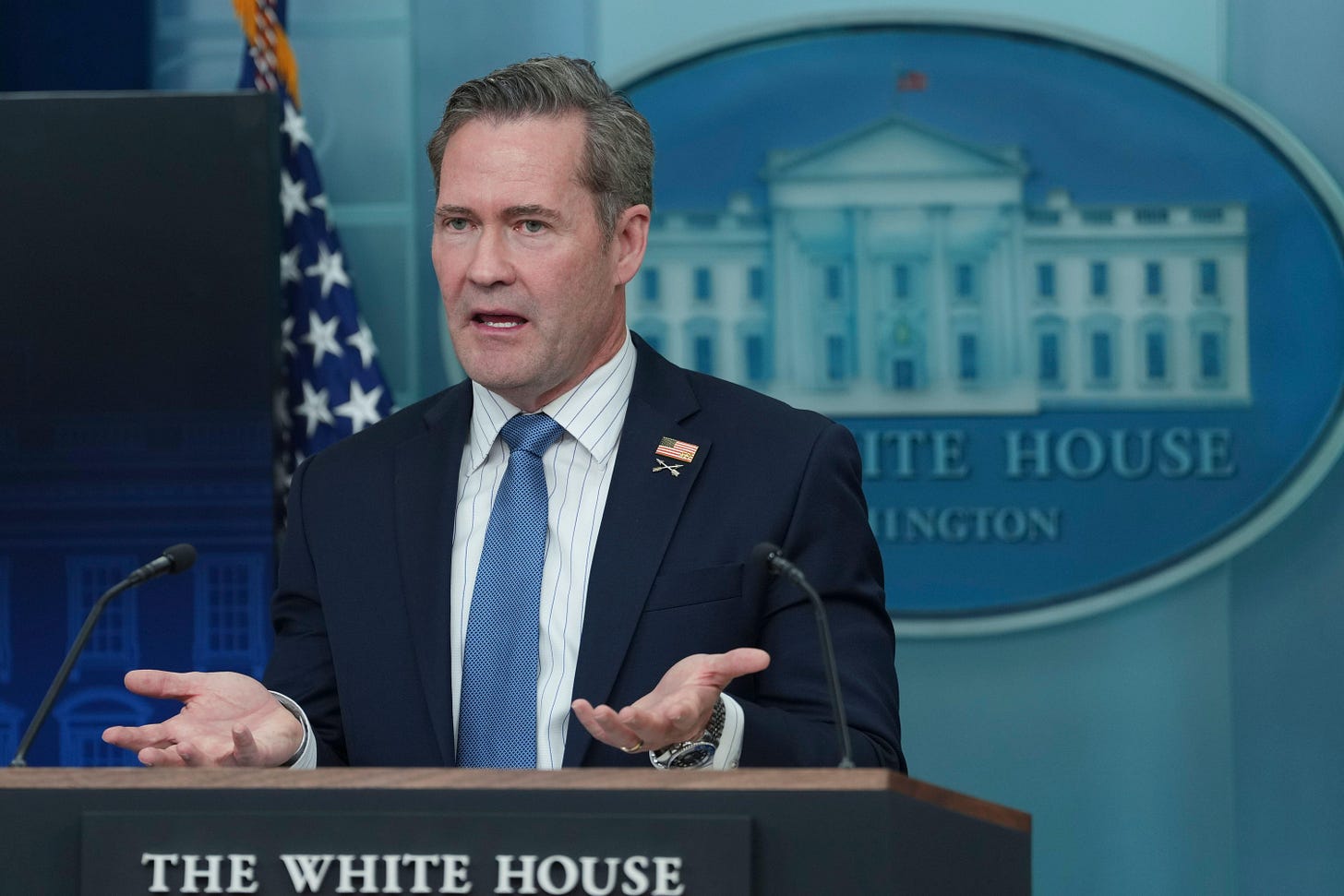Signal scandal reveals how the Trump White House is already unravelling
The real tragedy of the Signal chat fiasco is about human fallibility, and the impotence of a political and legal system no longer capable of enforcing centuries-old laws.

America’s bombing of Houthi rebels on March 15 would barely be worth a newspaper inch in normal times. Yet here we are, nearly two weeks later, still combing through the data wreckage of a Signal group chat that should have self-deleted by now – contravening both the Federal Records Act of 1950 and the Presidential Records Act of 1978. A scandal that could – and perhaps should – have ended any normal presidency.
These, however, are not normal times. Pick any thread, and you’ll have enough yarn to tell a different story.
The first and most obvious thread is how the editor-in-chief of The Atlantic was accidentally added to a top-secret group chat involving America’s national security inner circle. By now, we know the details: Defense Secretary Pete Hegseth and Vice President J.D. Vance expressing their loathing of European allies; the Trump administration putting a dollar amount on America’s security commitments; and national strategy seemingly conducted through emoji.
Yet, in some ways, this is the least interesting thread. Signal is cryptographically robust, even if it doesn’t meet NSA standards. We don’t need a deep dive into “elliptic curve cryptography” to understand that the real story is about human fallibility, and the impotence of a political and legal system no longer capable of enforcing centuries-old laws.
A more consequential thread leads to Congress, where politicians once again feel relevant, even if Democrat minorities in both the House and the Senate make a prolonged investigation less likely. Attorney General Pam Bondi has already ruled out a Department of Justice probe.
Yet on Thursday, President Trump withdrew Elise Stefanik’s nomination as UN ambassador. Next week, Florida’s 1st and 6th congressional districts hold special elections. Both are Republican safe seats, but the 6th – vacated by Michael Waltz when he became Trump’s National Security Adviser – suddenly looks competitive. Trump won there by 30 points in November; now, the race is within single digits. If the seat flips, the GOP’s House majority looks more precarious.
The GOP’s slim lead in the House made Stefanik’s nomination risky. She currently sits as the representative of New York's 21st congressional district and there she will stay as Republicans do not want a special election in New York amid the chaos the welfare changes, mass layoffs, and the unpopular role Elon Musk is playing as de facto President of the United States.
And then there’s the Signal debacle…
At times this week, it seemed that it was Waltz who could and should have become the fall guy for the whole scandal. It was Michael Waltz who created the Signal chat group, and it appears that it was Waltz who accidentally included The Atlantic’s Jeffrey Goldberg. But could Trump fire the guy before Florida’s electors had even chosen his successor?
Pick another thread. Let’s pick at the one leading into the White House.



